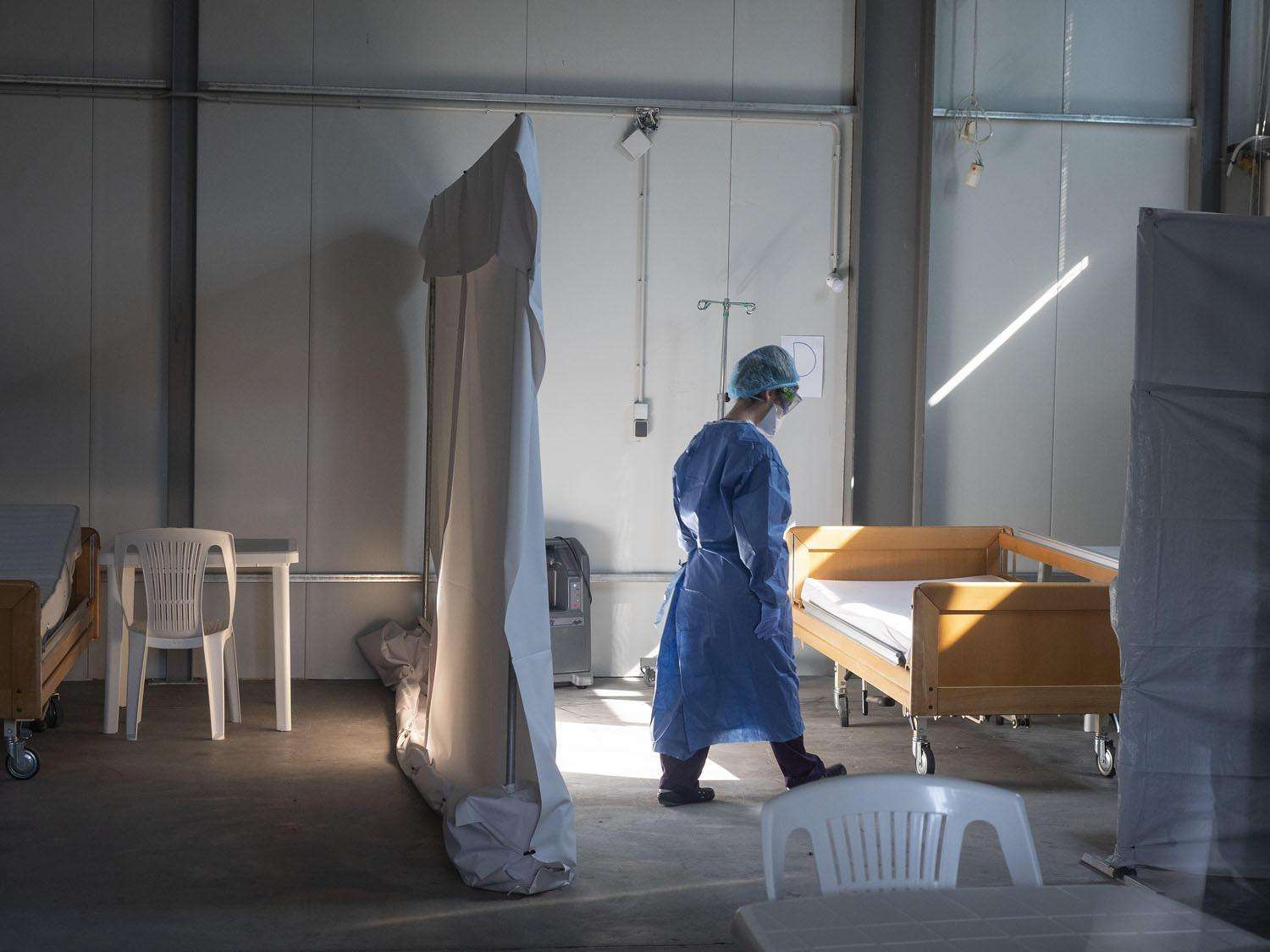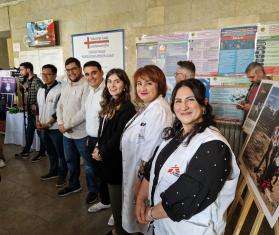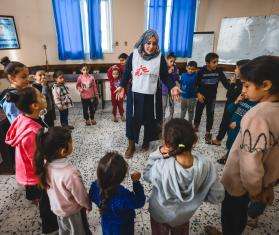NEW YORK/ATHENS, JULY 30, 2020—The international medical humanitarian organization Doctors Without Borders/Médecins Sans Frontières (MSF) has been forced to close its COVID-19 isolation center on the Greek island of Lesbos after local authorities imposed fines with potential criminal charges related to urban planning regulations.
MSF strongly condemns Greek authorities’ failure to help keep this isolation center open. This decision will significantly reduce the COVID-19 response capacity on the island and could have terrible implications should an outbreak occur in nearby Moria camp, where more than 15,000 refugees are living in overcrowded and unhygienic conditions, MSF warned.
“We are deeply disappointed that local authorities could not quash these fines and potential charges in light of the global pandemic, despite some efforts from relevant stakeholders,” said Stephan Oberreit, MSF’s head of mission in Greece. “Today we had to unwillingly close a crucial component of the COVID-19 response for Moria. The public health system on Lesbos would simply be unable to handle the devastation caused by an outbreak in Moria—which is why we stepped in.”
MSF’s COVID-19 isolation center on Lesbos opened on May 6 and was originally supported by public officials and the local hospital. The isolation center was the only place on Lesbos providing a safe space in which people from Moria with COVID-19 symptoms could be isolated and offered medical care.
Since July 1, the local authorities have used urban planning regulations to impose fines and potential criminal charges against MSF for its isolation center. These fines and potential charges are being levied against MSF despite the fact that the COVID-19 center is part of the emergency preparedness plan set out by the Minister of Migration aimed at preventing the spread of COVID-19 among the men, women, and children living in the Moria camp.
“It’s astonishing that we are being hampered by local authorities while trying to protect vulnerable people,” Oberreit said. “In Moria, we see an enormous violation of human dignity, with thousands of people trapped in inhumane conditions.”
The 15,000 people who currently live in Moria have little space and limited access to soap and water, making it impossible to carry out preventive measures against COVID-19 such as physical distancing and regular handwashing. More than 300 people at high-risk due to their age or chronic medical condition, as well as their families, remain trapped in these dangerous conditions. MSF continues to call for the immediate and urgent evacuation from Moria of all vulnerable people, including those at high risk to COVID-19, to safe accommodation elsewhere.
“This is not the first and it probably won’t be the last time that we and other humanitarian organizations face these types of obstacles as we try to cover the gaps left by European and Greek authorities in assistance to migrants and refugees,” said Bertand Perrochet, MSF’s director of operations. “For the past five years we have seen the terrible harm inflicted by containment policies on people trapped in reception centers where refugees are living across the Greek islands. Now, during a global pandemic, MSF has been prevented from responding to a public health risk that the authorities have neglected.”
MSF welcomes a discussion with Greek authorities about what should be done regarding the risk of COVID-19 for people in Moria and the importance of maintaining pediatric, sexual and reproductive health, and mental health services.
Greece: MSF forced to close COVID-19 center on Lesbos

Greece 2020 © Enri Canaj/MSF



